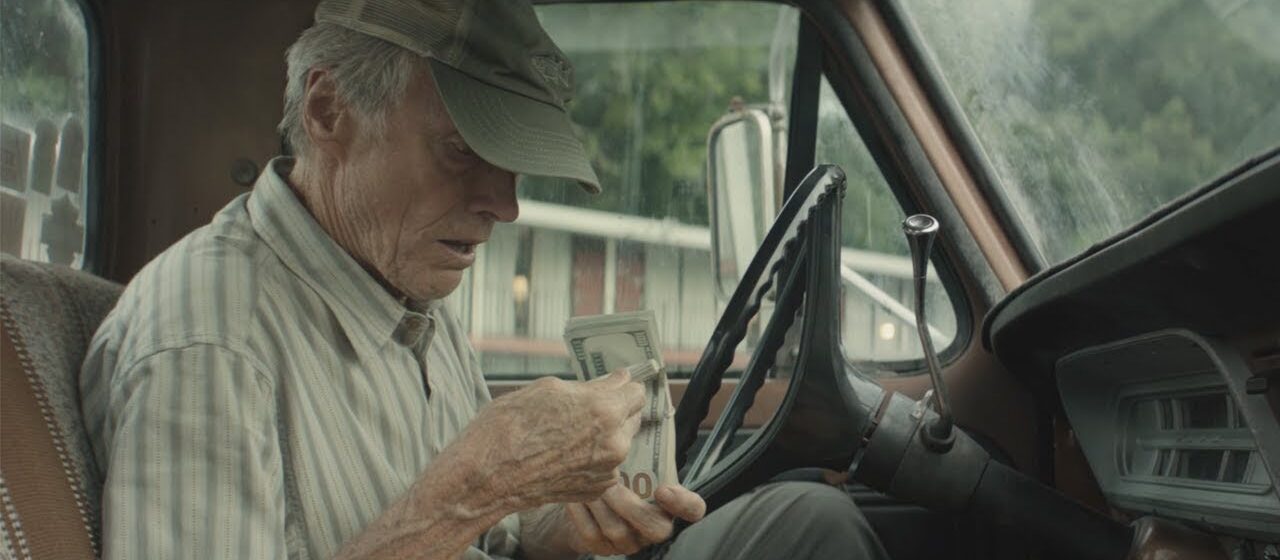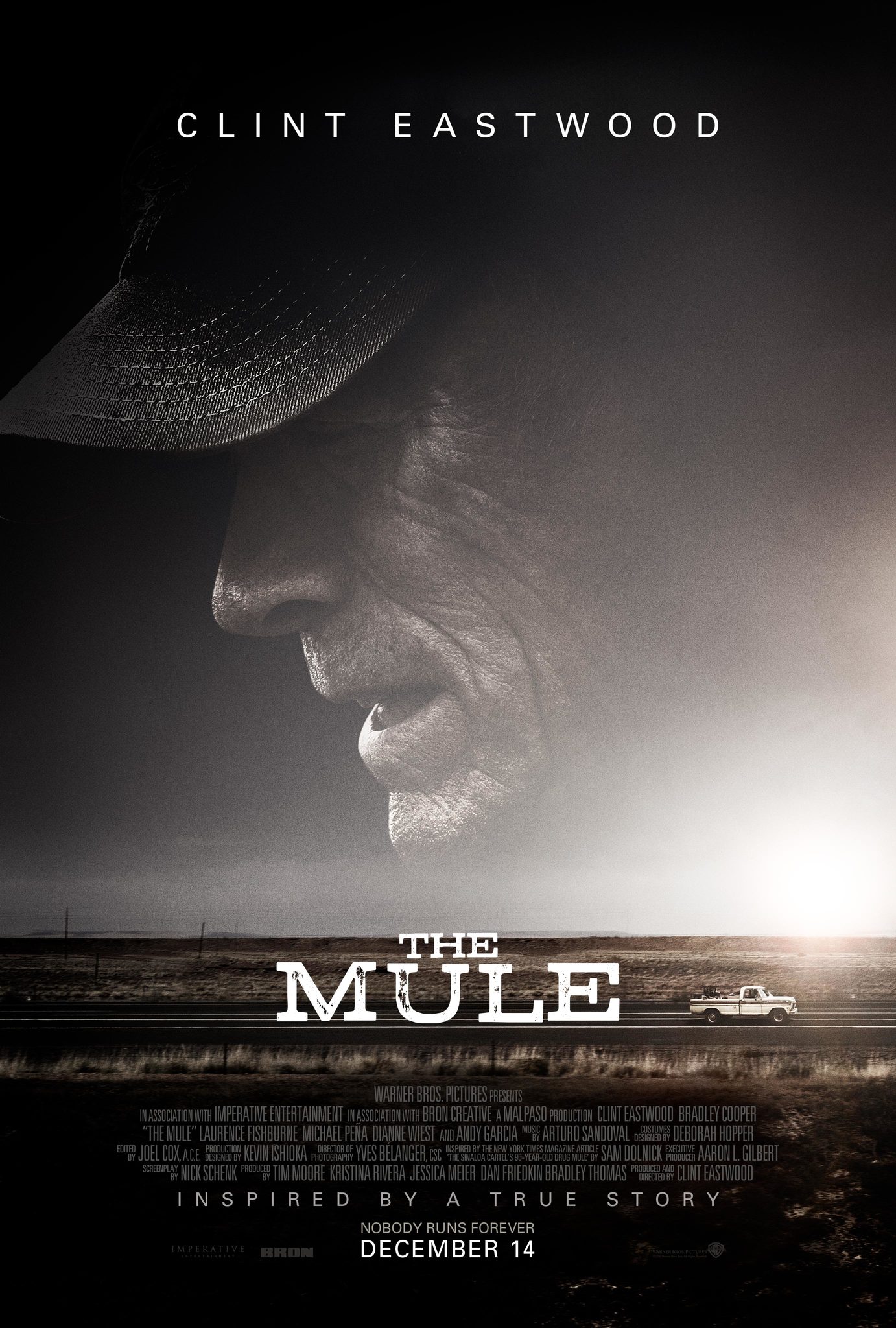

“Did anyone ever tell you you’re a bit of an asshole?”
“All the time. Even in Spanish.”
The Internet has fundamentally changed how society functions. In particular it has had a profound impact on brick-and-mortar businesses, which have seen their regular customer bases dwindle as online retailers and bix-box stores with cheaper price points have become ubiquitous. Clint Eastwood’s The Mule caustically laments this development even as it accepts its irreversibility.
Eastwood stars as Earl Stone, a renowned horticulturalist who has seen his life’s work turn to dust. Bankrupt and alienated from his family due to his professional dedication, Earl accepts a lucrative offer to become a drug courier for a cartel. (If this seems a touch outlandish, well, it’s based on the true story of Leo Sharp as reported by Sam Dolnick in The New York Times.) Due to his advanced age, caucasity, slow-poke driving, and steady-as-she-goes demeanor, Earl is virtually undetectable by law enforcement and is soon entrusted to smuggle massive amounts of cocaine through Illinois. He’s so nonchalant and inconspicuous that he doesn’t even hide the drugs; he just sets them in the back of his truck alongside bags of pecans and tin barrels of caramel popcorn.
As the film bounces around between enough roadside restaurants to round out a season of Diners, Drive-Ins, and Dives, making great use of panoramic shots of the highway as Earl ambles along in his truck singing along to oldies (recalling great road pictures of the 1970s), the ancient mule learns to operate in this weird liminal dimension between these two vastly different walks of life—he’s given a cell phone but refuses to learn how to text; despite orders to stay on his route, he constantly stops at his favorite barbeque joints; he openly mocks his cartel superiors when they act like tough guys; he introduces himself to the cartel boss (Andy Garcia) by asking how many people he had to kill to afford such an opulent villa.
In other ways, too, Earl seems like a man stuck in a peculiar past-future universe, and the film derives several moments of cheeky humor from interactions with a gang of lesbian bikers and a black family stuck on the side of a road with a flat tire. Consider that in both cases, he is uncommonly affable and helpful, but also astoundingly behind-the-times in his understanding of social norms. “Look, you’re white and we’re black,” he’s told when he reveals his lack of manners. “No shit,” he says, deadpan.
Dramatically, The Mule eventually shapes up into a pretty leisurely, no-frills crime thriller as two DEA agents (Bradley Cooper, Michael Peña) and their supervisor (Laurence Fishburne) gradually hone in on the mysterious drug courier. At one point there’s a Heat-esque meeting of the cat and mouse at a 24-hour diner that allows the wizened smuggler to impart some hard-earned wisdom to the younger man.
There is an element of family drama (featuring the director’s real-life daughter Alison Eastwood, as well as Dianne Wiest and Taissa Farmiga) that nicely echoes the secondary theme of overemphasizing professional achievement at the expense of being a good parent, or even a present one. In a way, the film inverts the formula of Breaking Bad—instead of turning him into a monster like Walter White, Earl’s involvement in the drug trade helps smooth his rough edges and clarify his personal failures while he still has time to rectify them; it prompts him to finally bloom like his fussed-over flowers.
As the film closes, one can’t help but wonder if there’s an aspect of personal history here, if Clint Eastwood apologizing to his daughter “for everything” might not have hidden connotations. Drug money and Hollywood money are equally ineffective when it comes to buying lost time.